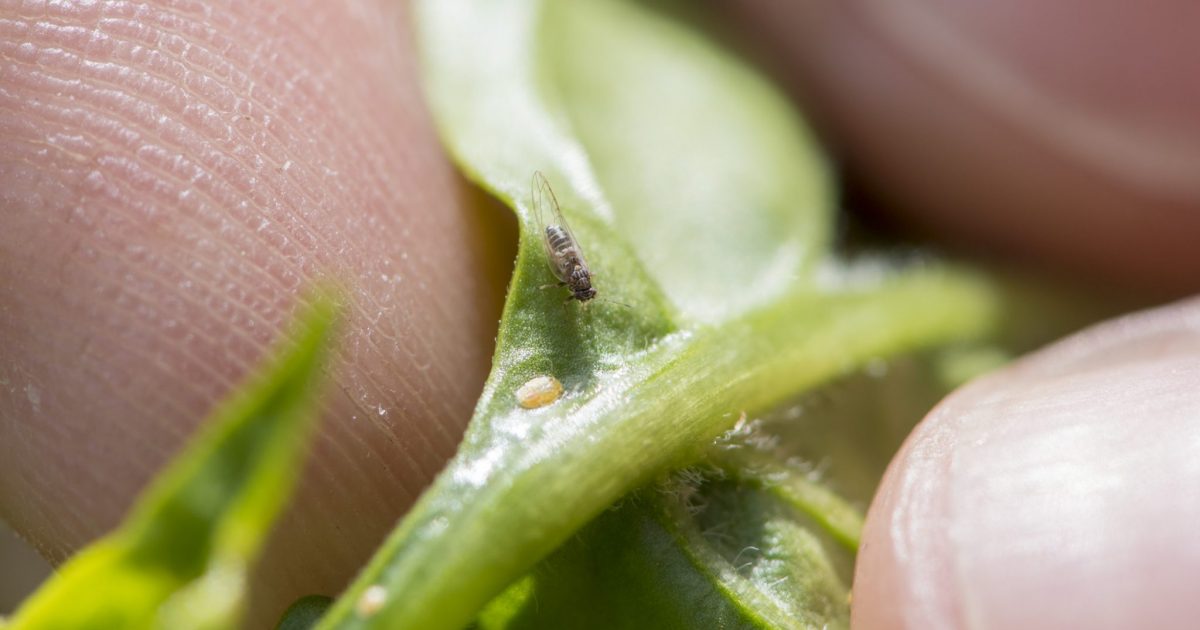Home gardeners are reminded to check and control for the insect pest, tomato potato psyllid (TPP), following a widespread trapping program across Perth and surrounds.

The Department of Primary Industries and Regional Development has commended local residents who volunteered to place ‘sticky’ traps in their gardens to support its surveillance efforts.
Department senior research officer Ian Wilkinson said of more than 1000 targeted sites involved, almost half had at least one psyllid trapped on their property, prompting a reminder for gardeners to be alert for the pest and control where required.
“TPP is a tiny sap-sucking insect that affects a range of plants including potato, tomato, capsicum, chilli, eggplant and tamarillo,” Dr Wilkinson said.
“We remind gardeners who grow these plants to look out for this pest and be aware of the control options available, which include a range of chemical or eco-friendly spray options.
“Gardeners should check their plants for insect eggs, nymphs and adults on the underside of leaves and look for signs of leaf damage, including yellowing or purpling of leaf margins or upward curling of leaves.
“Good control of insect pests such as TPP is important to minimise spread to other gardens and limit potential to spread to important horticultural production areas.”

Dr Wilkinson said the community had shown strong support for the program by offering to host surveillance traps on their properties, which were set and collected weekly by department officers during November.
“Trapping in areas with known populations of TPP has allowed us to test the insects to see if they carry the damaging plant bacteria Candidatus Liberibacter solanacearum (CLso),” Dr Wilkinson said.
“More than 4000 psyllids have been tested for CLso as part of this spring program and the bacteria has not been detected to date in WA.
“A further surveillance round will take place in autumn next year.
“Demonstration that the bacteria is not present in WA, through this surveillance program, will assist market access negotiations for host plants, including potatoes.”
Dr Wilkinson said participants in the survey had been advised whether TPP had been detected on their property and given management information.
More information on TPP and control options is available from the department website agric.wa.gov.au/tpp


